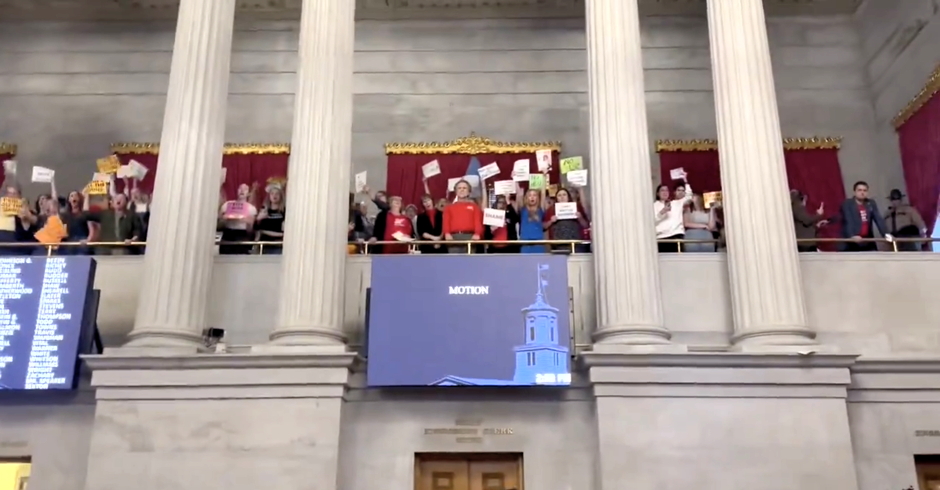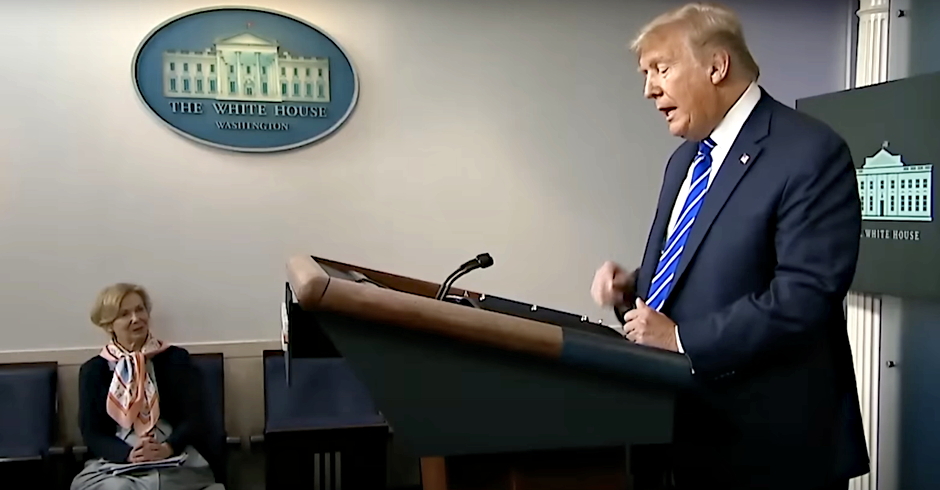Post 12
America is bringing shock and awe to the home front, using dollars instead of bombs.
It’s the military doctrine of lightning force — fast and brute, or as brute as the shaken country can manage — applied to the campaign for economic recovery.
With a record-busting stimulus plan, the U.S. is marshaling resources against economic catastrophe in ways not seen since Franklin Roosevelt put the New Deal in motion.
President Barack Obama is going with the best deal he could get. The stimulus bill is a landmark legislative achievement for a new president who inherited economic spoilage along with the spoils of power. Now the nation anxiously waits to see if it works.
Undermining federal balance sheets that were already deeply in the red, Obama and Congress settled on a nearly $800 billion plan that aims to spend more on the crisis at hand than the government has spent waging the Iraq war for six years.
The idea: fast cash, and lots of it, but with a strategic view to the future.
Some dollars will flow quickly into wallets — and right out again.
The stimulus plan will mean thousands of dollars in tax breaks for first-time home buyers and people buying new cars. Lower- and middle-income taxpayers will get an extra $13 a week in their paychecks this year, and about $8 a week next year. Unemployment checks will go up $25 a week, and keep coming longer. Food stamp benefits for 30 million Americans will rise. Short-term health insurance will become more affordable for many losing their jobs.
The success of the stimulus package may be measured less by visible achievements than by what does not happen — the home that is not foreclosed, the family that doesn’t slip into poverty, the disease that does not go undiagnosed.
“The one thing we’ll never know is what would have happened if we didn’t do it,” said Nigel Gault, chief U.S. economist for IHS Global Insight.
It’s not FDR’s deal and these aren’t his times.
No federally subsidized artists will paint murals glorifying the muscle of American workers or the progress belching from smokestacks, as they did in Roosevelt’s day.
No grand compact is to be formed between generations like the one that promised everyone a federal pension. No institutions will rise to try something brand new.
“We’re not reinventing government,” said historian Kenneth C. Davis, author of the best-selling “Don’t Know Much About” series. “We’re modifying things that exist.”
Yet as the share of the economy taken up by federal spending rises to an anticipated 30 percent, the nation is grappling again with big questions about Washington’s place in people’s lives.
“The stakes are so high now, this is such a big bill, average Americans are following it,” says Princeton historian Julian Zelizer. “It’s become a bill that is an argument about what government can or can’t do.
“If there is no effect and in six months we are talking about the same economy or a worse economy, I think it would be a devastating blow to the president, Democrats, and to liberal claims about what government can do.”
To critics such as Senate Republican leader Mitch McConnell, the package is the “Europeanization of America.” Others call it “Rooseveltian” or “generational theft” in reference to the debt passed on to the future.
They might envision murals glorifying little more than filled potholes, insulated windows, depreciated computers.
Obama said it’s about more than that, and drew parallels with FDR in speaking Friday to the Business Council, formed by corporate leaders in the 1930s to advise Roosevelt’s administration.
“We adapted, we changed,” he said about those days — and these. “President Roosevelt understood the new role of government in this new world, that while extraordinary actions on its part might be the source of recovery, no action on the part of government, no matter how extraordinary, would alone be the source of our prosperity.”
Democrats and just enough Republicans in Congress — three — saw the package as the best chance to tamp down the economic wildfires breaking out across the landscape.
Obama came into office saying he wished to be judged on his first 1,000 days instead of the usual benchmark of 100. In some ways he will be judged on his first 10 or 20.
Not even Roosevelt, fast off the mark to deal with a bank crisis, was as fast as this in achieving something so sweeping, so early.
The enormity of the package left politicians grasping for concrete ways to convey its size.
Sen. John Thune, R-S.D., spoke of a stack of hundred-dollar bills 689 miles high, and of bills wrapped side-by-side that would encircle the Earth nearly 39 times. House Republicans predicted that the package’s costs — with interest on the necessary borrowing — could total more than a trillion dollars, enough money to buy about 1,000 boxes of Girl Scout cookies for every American.
It was enough to prompt comic Jon Stewart to riff that if you sewed the $100 bills together, “you would make a blanket for Jupiter.”
The stimulus wasn’t just about throwing cash at the economy, though.
The package is filled with billions for some of the same goals that Obama preached about on the presidential campaign trail — renewable energy and green jobs, computerized medical records, broadband Internet service for underserved areas.
“There are seeds in this bill for long-term change,” says Zelizer. “There are things that can develop out of the research that can change our lives.”
Obama sounded a drumbeat of warnings about the consequences of failing to act. But Americans didn’t need their president to tell them how grim the economic situation was — and could become.
Forty percent of Americans already have been affected by some sort of job problem in the past year, be it unemployment, underemployment, layoffs, reductions in pay or hours, or job losses by members of their households, according to a poll released Friday by the Pew Research Center. Fifty-six percent expect things to be worse or about the same a year from now — and they’ve got solid grounds for their pessimism.
The country could well suffer a net loss of 2 million to 3 million or more jobs this year, economists believe. And the unemployment rate, now 7.6 percent, could top 9 percent by spring of 2010.
The stimulus pull-together was a colossal game of winners and losers shaped and reshaped by the latest set of hands on the package. The fortunes of people, schools, towns and other varied interests rose and fell in blinks of time.
Ready to buy another home?
Poof — you just lost $15,000 that legislators had considered providing.
Buying a first home? You’re still in luck — the government plans to give you an $8,000 credit if you buy by the end of November.
A new car? You’ll be able to deduct the thousands in sales taxes from your income tax but not — as was initially proposed — your loan interest as well.
One day, the government proposed to pay 65 percent of the cost of health coverage for a year for jobless people who lose their workplace insurance. Days later, it was down to half. Ultimately, the subsidy zigzagged back up to 65 percent, but it expires before the end of the year.
Obama declared an end to pork-barrel politics, but legislators still managed to look out for favorite projects.
Senate Majority Leader Harry Reid, D-Nev., was quick to point out that a big chunk of the $8 billion set aside to construct high-speed rail lines could go to a proposed Los Angeles-to-Las Vegas route. Sen. Arlen Specter, R-Pa., helped make sure $10 billion was set aside for the National Institutes of Health, a priority of his.
Long after the dust has settled from the horse trading, the government will be seen to have moved with unaccustomed speed on policies normally subjected to years of deliberation and gridlock.
Deficit hawks found their wings clipped as both parties reached for the treasury. Democrats mainly wished to spend; Republicans, mainly to cut taxes.
After last November, guess who got their way?
Democratic House Speaker Nancy Pelosi said flatly: “We won the election; we wrote the bill.”
The debate was both large and small. Negotiators considered the proper role of government — and how fast a business can depreciate its equipment.
Entering the 1930s, Americans mainly saw the national government as the entity that fought wars, ran post offices and enforced a ban on liquor. Federal spending was only 3.4 percent of the economy.
That more than tripled during the New Deal, topping 10 percent, because of the explosion of public works and other labor programs, rural modernization, bank support, and farm and industrial aid.
“It was a transformation of society in a way that hadn’t been done since the end of the Civil War and the end of slavery,” Davis said.
The government became the entity that guaranteed a minimum wage, controlled farm production, supported artists, set workplace standards, insured deposits in regulated banks and cast the first national safety net for the elderly and handicapped under Social Security.
“The whole scope of what Roosevelt was trying to do is different but the intent is clearly the same: relief and recovery during a time of economic stress,” said John Halpin, senior fellow at the Center for American Progress.
The package won by Obama offers “very important but more subterranean changes in the way the economy works,” he said.
Federal spending as a share of the economy shot above 40 percent during World War II and has hovered around 20 percent most of the years since. That share was already projected to approach 25 percent before Obama’s stimulus plan.
To be sure, there’s still considerable disagreement about how much the New Deal helped to end a depression finally crushed by the humming factories of World War II.
Even FDR’s transformation of the federal government was not universally recognized at the time for what it was. It may be years before the full measure of Obama’s efforts are taken, too.
In 1936, The Economist magazine pronounced the New Deal a “striking success” in improving conditions that existed when FDR took office three years earlier.
But what of the legacy?
What legacy?
“If the criterion be Utopian, the achievements of the New Deal appear to be small,” the editors sniffed. “The great problems of the country are hardly touched.”

Enjoy this piece?
… then let us make a small request. The New Civil Rights Movement depends on readers like you to meet our ongoing expenses and continue producing quality progressive journalism. Three Silicon Valley giants consume 70 percent of all online advertising dollars, so we need your help to continue doing what we do.
NCRM is independent. You won’t find mainstream media bias here. From unflinching coverage of religious extremism, to spotlighting efforts to roll back our rights, NCRM continues to speak truth to power. America needs independent voices like NCRM to be sure no one is forgotten.
Every reader contribution, whatever the amount, makes a tremendous difference. Help ensure NCRM remains independent long into the future. Support progressive journalism with a one-time contribution to NCRM, or click here to become a subscriber. Thank you. Click here to donate by check.
 |


















